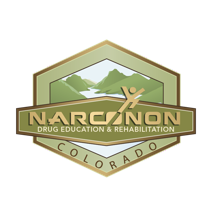The Importance of Treating the Whole Person Not Just the Addiction

So you or a loved one are ready to get sober and you think to yourself, “Ok, all I’ve got to do is stop drinking or using drugs and I will be good; right?” Wrong. This sort of approach to getting sober is usually very unsuccessful. The reason for because drug and alcohol use are not the only problems when it comes to addiction.
Addiction has an impact on every aspect of a person’s life. Without treating a person on a physical, mental and emotional level there is an increased chance for relapse. It is also imperative to treat any underlying issues that may have contributed to the addiction in the first place. The most important things to address when treating addiction are:
1.The physical aspect.
This is one of the first things that needs to be worked on when it comes to treating addiction. There is usually a good chance that a person will experience withdrawal symptoms when they stop using drugs or alcohol. Depending on the types of drugs or the amount of alcohol that is used on a daily basis, there is a chance that the detox will need to be done in a medical setting in order to get through the withdrawal process safely.
It is best to consult with a medical doctor prior to quitting drugs or alcohol in order to ensure that it is done in a safe manner. It is also a good idea to work with trained professionals who are able to assist you during the withdrawal process to support and coach you through it.

Nutritional deficiencies are another important thing to take into consideration when it comes to treating addiction. Drugs and alcohol burn up vitamin reserves in the body and most people who are dealing with substance abuse are not eating healthily. This combination can lead to a multitude of health problems because without proper nutrition, the mind and body are not able to function as well as they should. Health problems that were caused by addiction such as hepatitis C or liver damage should also be taken care of. By developing healthy eating habits, seeking out medical care and taking vitamin supplements a person will be on their way towards living a healthier life.
2. The mental aspect.
By the time a person becomes addicted they have begun to believe the lie that they cannot live, function or have fun without the use of drugs or alcohol. This is why it is so necessary to work on shifting from the thinking patterns of active addiction to the mindset of recovery. Learning how to overcome negative thought processes is just one of the many steps that will be required to stay sober.
3. The emotional aspect.
Addiction wreaks havoc on a person’s emotional wellbeing. The roller coaster ride of being high or drunk and then going through withdrawal or hangovers can take a heavy toll on a person. Some people become so emotionally dependent on their drug of choice that they do not know how to handle their emotions without it. In order to get past this, a crucial thing to learn is how to work through difficult emotions without the use of drugs or alcohol.
4. The social aspect.

Many times addiction starts out as a way to hang out with other people. By the time things get really bad a person has usually withdrawn from most social settings that do not involve some form of substance abuse and no longer knows how to connect with other people without it. This can make social settings particularly uncomfortable in early sobriety. Because of this, it is essential to learn how to connect and communicate with others without the use of drugs or alcohol. One must also learn how to interact with other people in new social settings. This can take some time and a lot of work but will be well worth the effort.
5. Developing new life skills.
Addiction will deteriorate a person’s ability to confront their problems, control their actions and communicate with others. It will also lower their ability to make wise decisions about who they should keep in their lives and who they should not be around in order to live a successful life. This is why it is so important to work on redeveloping these skills, among many others, during addiction recovery. Without the proper tools, a person will have a difficult time when it comes to gaining mastery over their lives.
6. Developing new coping mechanisms.
By the time a person’s substance abuse reaches the level of being an addiction they have lost most if not all of their healthy coping mechanisms. That is because the quickest solution to anything becomes drinking or getting high instead of actually dealing with the situation. This is why it is absolutely necessary that a person develop healthy coping mechanisms if they want to stay sober. Learning how to effectively deal with stress is a non-negotiable aspect of sobriety.
7. Addressing underlying issues that contributed to the addiction.
Oftentimes addiction is actually a symptom of an underlying problem. The types of problems will vary from person to person but can be anything from some form of abuse that occurred earlier on in life to anxiety in social settings. No matter what the problem may be, the fact of the matter remains that it must be worked on if a person is to remain sober.

8. Creating a whole new lifestyle.
In the journey of addiction recovery quitting drugs or alcohol is only the first step. There are no shortcuts and there is a lot of work to be done. My hope is that this truth will not discourage you, but rather inspire you to find the right program that will help you learn how to work on every aspect of your life—not just the addiction.


